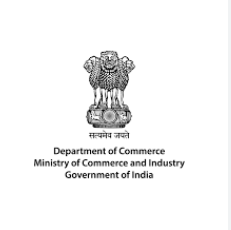Ministry of Commerce and Industries
The Ministry of Commerce and Industry is a branch of the Government of India that is responsible for formulating and implementing the country’s trade and industrial policies. The ministry’s primary goal is to promote economic growth and development through trade, investment, and industrial development. It is headed by a Union Minister who is assisted by two Ministers of State.
History
The Ministry of Commerce and Industry has its roots in the Department of Commerce and Industry, which was established in 1905 under the British Raj. After India gained independence in 1947, the department was renamed the Ministry of Commerce and Industry. In 1951, the ministry was bifurcated into two separate ministries: the Ministry of Commerce and the Ministry of Industry. However, in 1991, the two ministries were merged again to form the current Ministry of Commerce and Industry.
Functions and Responsibilities
The Ministry of Commerce and Industry has several key functions and responsibilities, including:
- Formulating and implementing trade policies: The ministry is responsible for formulating and implementing India’s trade policies, including bilateral and multilateral trade agreements, tariffs, and non-tariff barriers.
- Promoting exports: The ministry works to promote Indian exports by providing assistance to exporters, organizing trade fairs and exhibitions, and negotiating market access for Indian products in foreign markets.
- Attracting foreign investment: The ministry seeks to attract foreign direct investment (FDI) into India by creating a conducive business environment, removing regulatory barriers, and providing incentives to investors.
- Developing industrial infrastructure: The ministry is responsible for developing industrial infrastructure, including industrial parks, special economic zones (SEZs), and industrial corridors.
- Regulating intellectual property rights: The ministry oversees the protection and enforcement of intellectual property rights (IPRs) in India, including patents, trademarks, and copyrights.
Departments and Agencies
The Ministry of Commerce and Industry comprises several departments and agencies, including:
- Department for Promotion of Industry and Internal Trade (DPIIT): The DPIIT is responsible for formulating and implementing policies related to industrial development, FDI, and internal trade.
- Department of Commerce: The Department of Commerce is responsible for formulating and implementing policies related to international trade, including trade agreements, export promotion, and trade remedies.
- Directorate General of Foreign Trade (DGFT): The DGFT is responsible for implementing the Foreign Trade Policy and promoting exports through various schemes and incentives.
- Export Inspection Council (EIC): The EIC is responsible for ensuring the quality and safety of Indian exports through inspection and certification.
- Government e-Marketplace (GeM): GeM is an online platform for public procurement of goods and services by government departments and agencies.
Key Initiatives and Policies
The Ministry of Commerce and Industry has launched several key initiatives and policies to promote trade, investment, and industrial development in India, including:
- Make in India: Launched in 2014, Make in India is a national program designed to transform India into a global manufacturing hub by encouraging domestic and foreign investment in the manufacturing sector.
- Startup India: Launched in 2016, Startup India is a national initiative to promote entrepreneurship and innovation by providing support and incentives to startups.
- National e-Commerce Policy: The ministry is currently drafting a national e-commerce policy to regulate the rapidly growing e-commerce sector in India and protect the interests of consumers and small businesses.
- National Logistics Policy: The ministry is also drafting a national logistics policy to improve the efficiency and competitiveness of India’s logistics sector and reduce logistics costs.
Impact and Challenges
The Ministry of Commerce and Industry has played a significant role in promoting economic growth and development in India through trade, investment, and industrial development. Some of the key impacts of the ministry’s policies and initiatives include:
- Increase in exports: India’s exports have grown significantly in recent years, reaching a record high of $330 billion in 2018-19, thanks in part to the ministry’s efforts to promote exports and negotiate market access for Indian products.
- Attracting foreign investment: India has become one of the top destinations for FDI in the world, with total FDI inflows reaching $62 billion in 2019-20, thanks to the ministry’s efforts to create a conducive business environment and remove regulatory barriers.
- Developing industrial infrastructure: The ministry has developed several industrial corridors, parks, and SEZs across the country, which have attracted significant investment and generated employment opportunities.
However, the ministry also faces several challenges in its efforts to promote trade, investment, and industrial development, including:
- Global economic uncertainty: The global economic environment remains uncertain, with trade tensions, geopolitical risks, and the ongoing COVID-19 pandemic posing significant challenges to global trade and investment.
- Domestic regulatory challenges: India’s complex regulatory environment, including multiple approvals and clearances required for setting up and operating businesses, continues to pose challenges for investors and businesses.
- Infrastructure and logistics bottlenecks: India’s infrastructure and logistics sector remains underdeveloped, with high logistics costs and inefficiencies affecting the competitiveness of Indian exports and industries.


